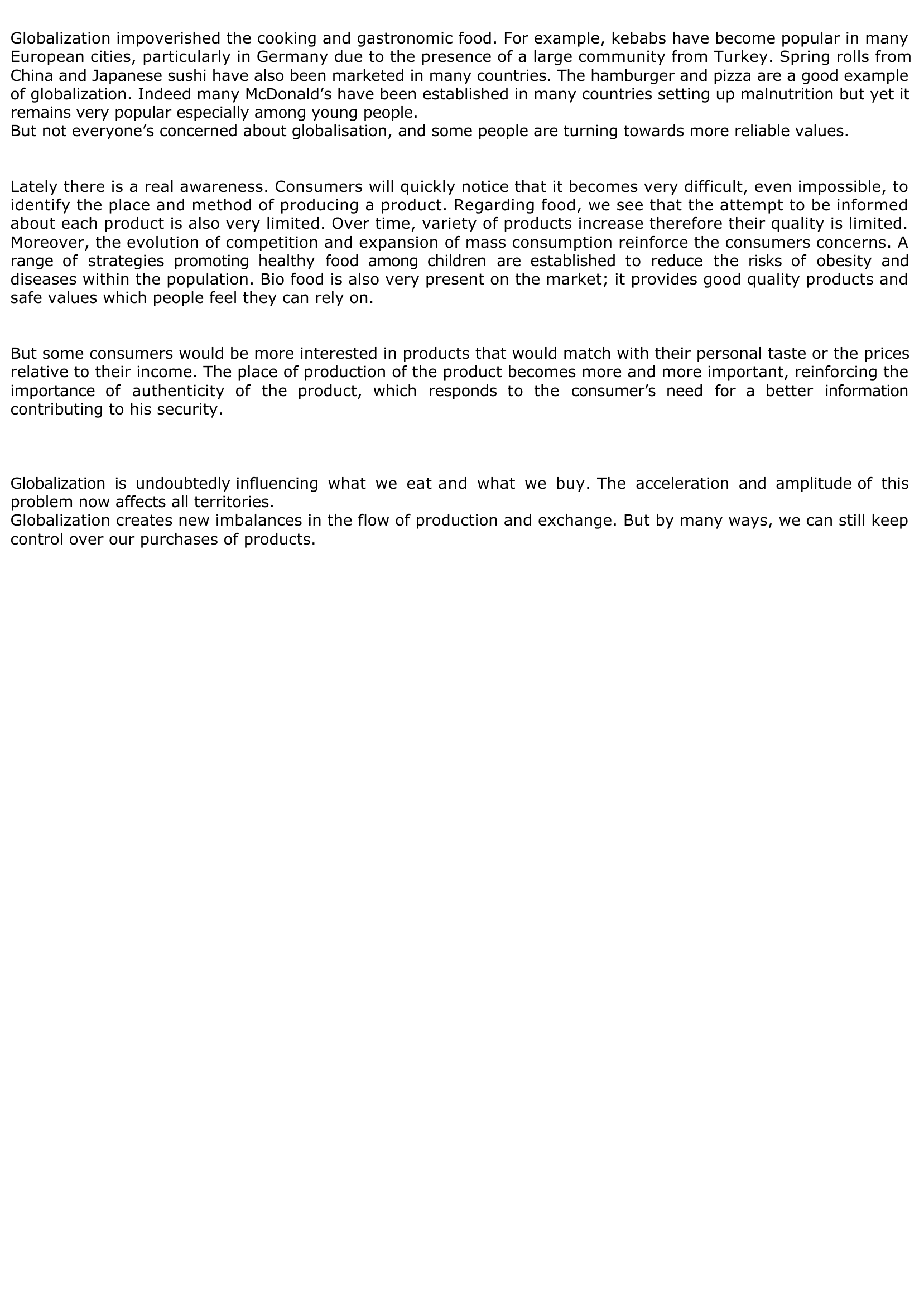To what extent does globalisation influence what you eat ?
Publié le 25/06/2011
Extrait du document
Advances in production stimulated Europeans to reach other parts of the globe. They are trying to reduce production costs and diversify their products and also to value their market image. Food production has seen a great evolution, and people could be influenced by the rise of this new era of mass production, but to what extent does globalisation influence what you eat?
«
Globalization impoverished the cooking and gastronomic food.
For example, kebabs have become popular in manyEuropean cities, particularly in Germany due to the presence of a large community from Turkey.
Spring rolls fromChina and Japanese sushi have also been marketed in many countries.
The hamburger and pizza are a good exampleof globalization.
Indeed many McDonald’s have been established in many countries setting up malnutrition but yet itremains very popular especially among young people.But not everyone’s concerned about globalisation, and some people are turning towards more reliable values.
Lately there is a real awareness.
Consumers will quickly notice that it becomes very difficult, even impossible, toidentify the place and method of producing a product.
Regarding food, we see that the attempt to be informedabout each product is also very limited.
Over time, variety of products increase therefore their quality is limited.Moreover, the evolution of competition and expansion of mass consumption reinforce the consumers concerns.
Arange of strategies promoting healthy food among children are established to reduce the risks of obesity anddiseases within the population.
Bio food is also very present on the market; it provides good quality products andsafe values which people feel they can rely on.
But some consumers would be more interested in products that would match with their personal taste or the pricesrelative to their income.
The place of production of the product becomes more and more important, reinforcing theimportance of authenticity of the product, which responds to the consumer’s need for a better informationcontributing to his security.
Globalization is undoubtedly influencing what we eat and what we buy.
The acceleration and amplitude of thisproblem now affects all territories.Globalization creates new imbalances in the flow of production and exchange.
But by many ways, we can still keepcontrol over our purchases of products..
»
↓↓↓ APERÇU DU DOCUMENT ↓↓↓
Liens utiles
- What is a dream for you ? (Celon toi qu'est ce qu'un rêve ?)
- what did you do?
- "'Well, what can you say about that?
- What would you do if you discovered an island by accident ?
- Subject: What are the impacts of racism on black people in the United States

































